Schwinn Fitness 800IC exercise bike review
A value for money option that'll help you train within specific power zones
- (opens in new tab)
- (opens in new tab)
- (opens in new tab)
- Sign up to our newsletter Newsletter
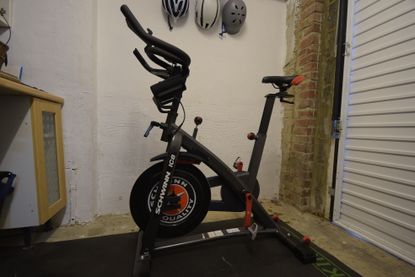
The Schwinn Fitness 800IC exercise bike is a very smooth, almost silent indoor bike which will help you achieve your fitness goals, through working in specific power zones. Comfortable and durable you could easily spend well over an hour pushing out the watts or work on form and technique at lower powered higher cadence work.
-
+
Durable
-
+
Very quiet
-
+
Under £1,000
-
+
Comfortable
-
+
Easy to set-up easy to use
-
+
Compatible with a wide range of fitness apps
-
+
Easy to read LCD screen
-
+
Easy to adjust gears
-
-
May not be the most accurate in terms of power data
-
-
Larger footprint of that of its rivals
Why you can trust Cycling Weekly Our expert reviewers spend hours testing and comparing products and services so you can choose the best for you. Find out more about how we test.
The Schwinn Fitness 800IC is a magnetic resistance stationary exercise bike, which is compatible with most indoor training apps such as Zwift, Peloton, Rouvy and others thanks to its Bluetooth connectivity.
Available from Fitness Superstore for £949, the bike is almost silent, smooth, comfortable to ride and has some neat features.
Schwinn Fitness 800IC: construction
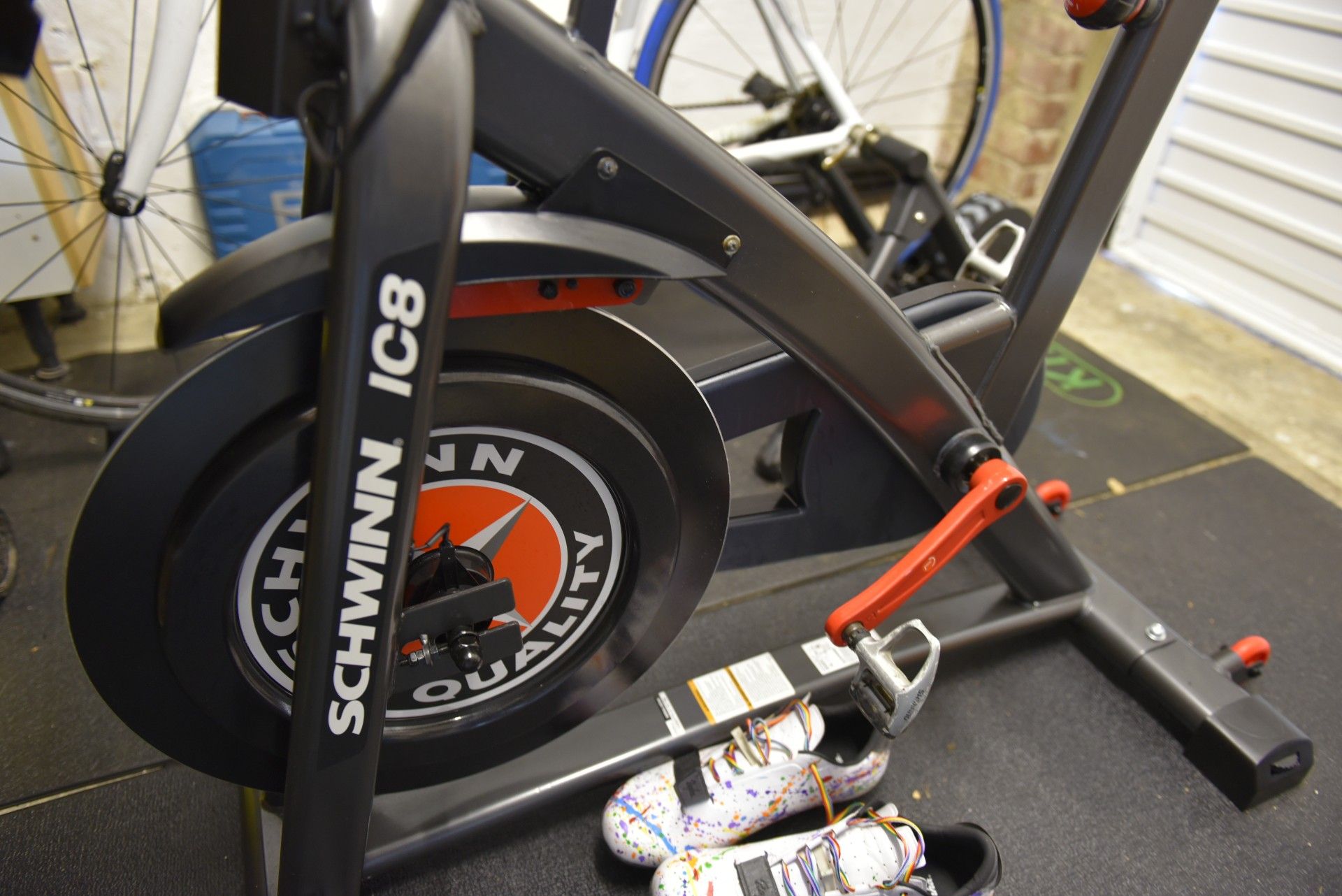
Schwinn has gone for a magnetic resistance flywheel as opposed to a direct contact flywheel – both offer similar results when it comes to the ease of changing the resistance, accuracy of resistance and the higher levels of resistance possible.
Where magnetic resistance excels though is in levels of wear and tear, noise and maintenance, these are generally much lower on magnetic resistance exercise bikes opposed to direct contact, the downside is they generally tend to cost more – factor in how often you intend to use your exercise bike and the cost of repairs, it may be a better long-term investment to go for a magnetic resistance bike.
It’s easy to see the level of resistance too, as there is a well sized backlit LCD metric console which will give you information on time, distance, speed, calories, heart rate, resistance level and your RPM. A further advantage of the magnetic resistance is that your level of resistance is easy to see and is relatable going from 0 to 100, opposed to a direct contact resistance which, generally, is just a twist of a knob to apply more resistance, never really knowing where your resistance level is at.
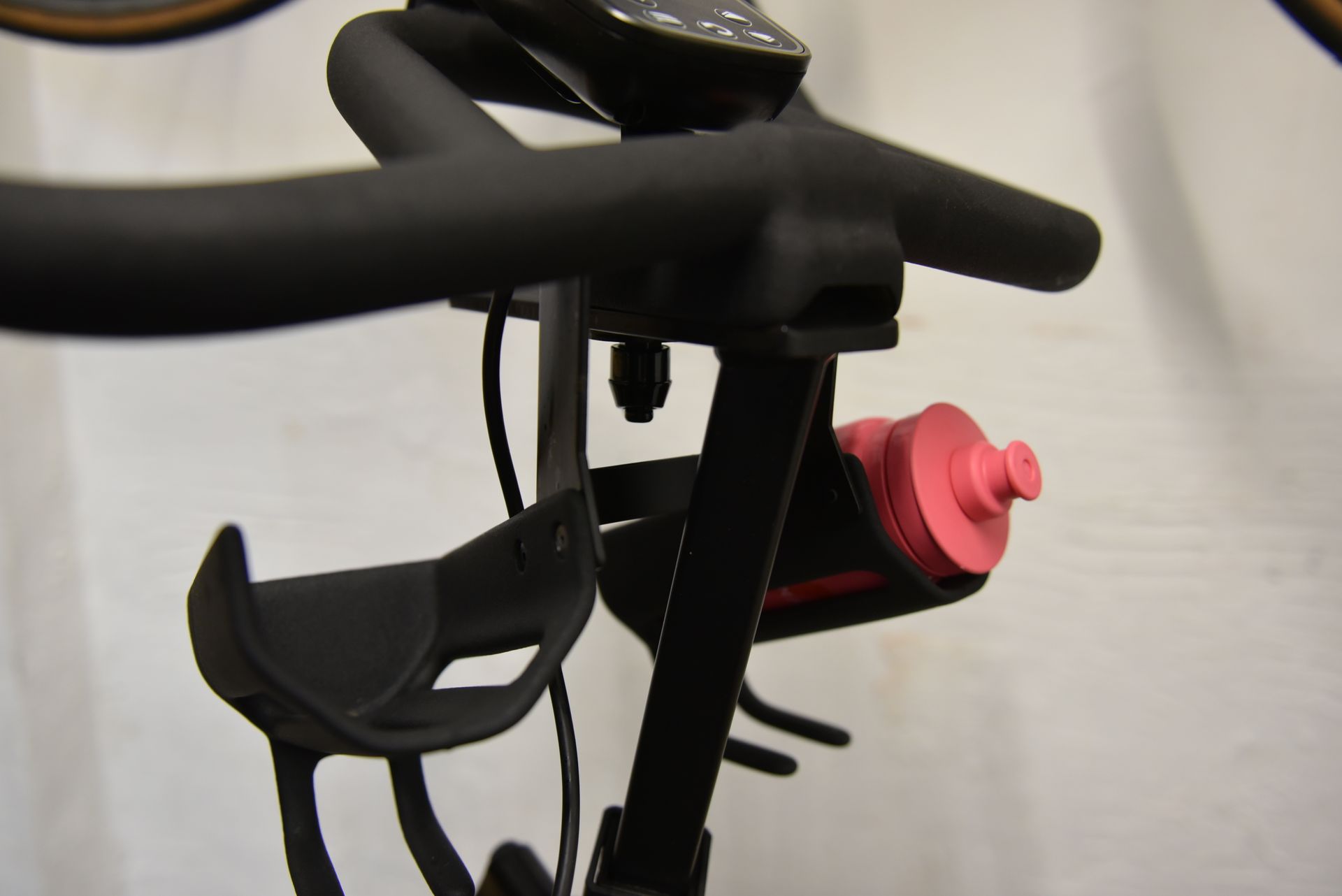
The Schwinn Fitness 800IC allows you to work within power bands with ease, you might turn the pedals at 80 RPM in resistance level 65 for five minutes, and then you are able to gauge your workouts more closely.
The changing of resistance is still the twist of a knob, twist right for higher resistance and left for lower, just with the added information on screen of what resistance level you are in.
With Bluetooth 4.0 connectivity, setup on indoor training apps is very simple and quick, you can also connect a heart rate monitor. I could not get the 800IC to connect to my Wahoo RIVAL, but I’m told it will connect to a strap band which goes around your chest or arm, your heart rate then shows on the LCD console and the information is then fed into the fitness app.
The Schwinn Fitness 800IC does not provide power readings in wattage. When riding on Zwift, your power will be estimated via the speed/cadence sensor in conjunction with the resistance level. We have found other bikes using this system to be relatively accurate in the past, when compared with an actual power meter. However, it will never be as accurate - so if exact power output measurements are important to you, you’re better off looking to more cyclist-orientated options, as opposed to general fitness bikes. The Wattbike Atom and Wahoo Kickr bike are examples.
Schwinn Fitness 800IC: the ride
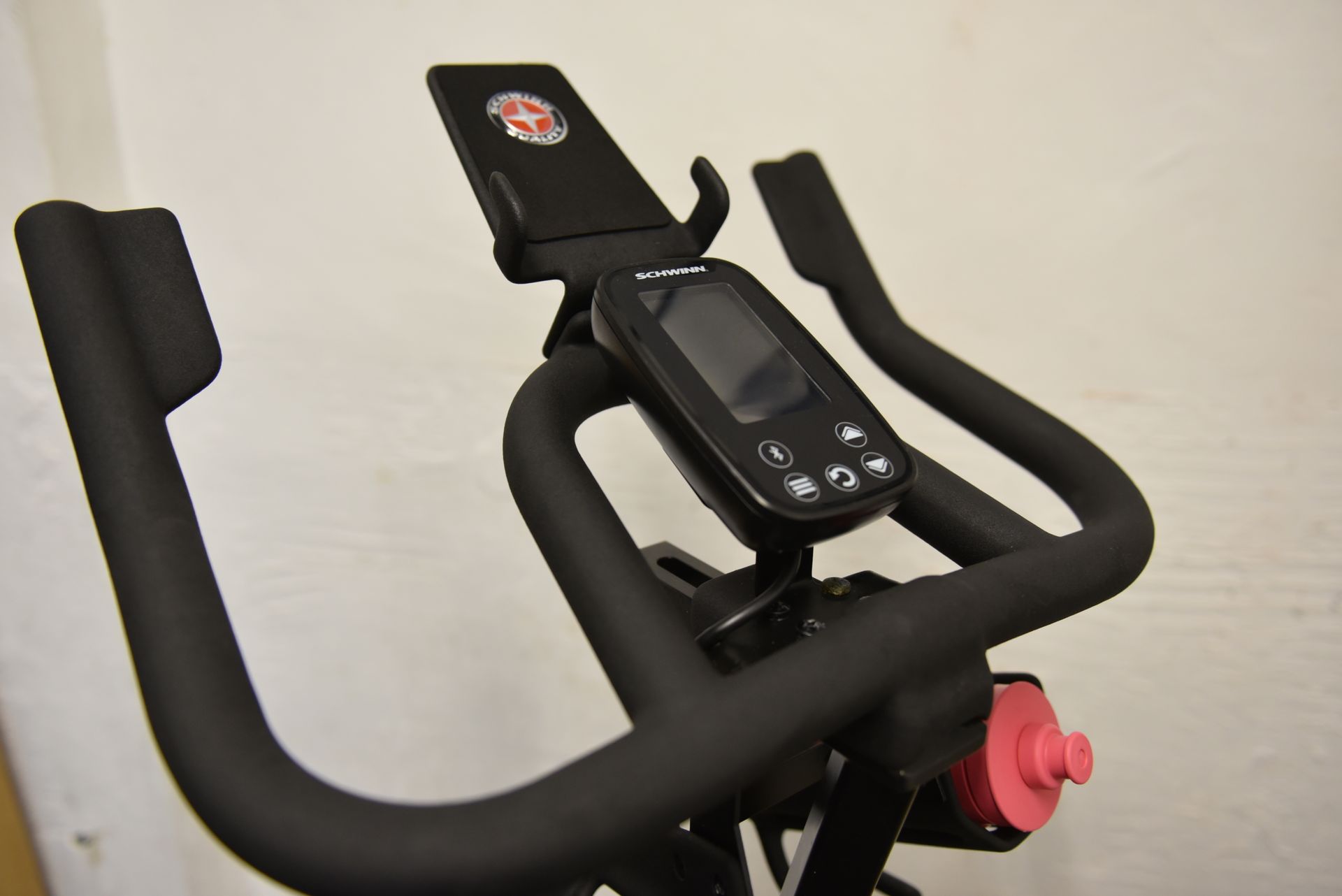
Having tested this bike out with Zwift extensively, I can vouch for the fact that it’s very simple and easy to use.
What you will find though, is your power level on Zwift will instantly increase, because the resistance on the bike isn’t controlled by a smart turbo. There’s no erg mode - so your Zwift workouts will become easier. You’ll approach 10% gradients on Zwift in the same gear and pedal speeds as you would on -10% gradients, the resistance on the bike doesn’t get any more or any less.
Of course, your power will therefore not increase to reflect added resistance, so unless you pedal harder and faster, the game will slow you down on your mph. However, from my experience, I was still going faster than most people on a smart turbo, by nature of easier pedalling.
It is a good solid bike, heavy too, 48kg fully assembled, for me, weight doesn’t overly matter though, it has two small wheels on the front support so if you need to move it around for cleaning, then you can lift the bike from the rear and manoeuvre it around. It is also a reassurance that the bike isn’t going to budge if you’re doing heavy sprints or you’re up out of the saddle on a climb.
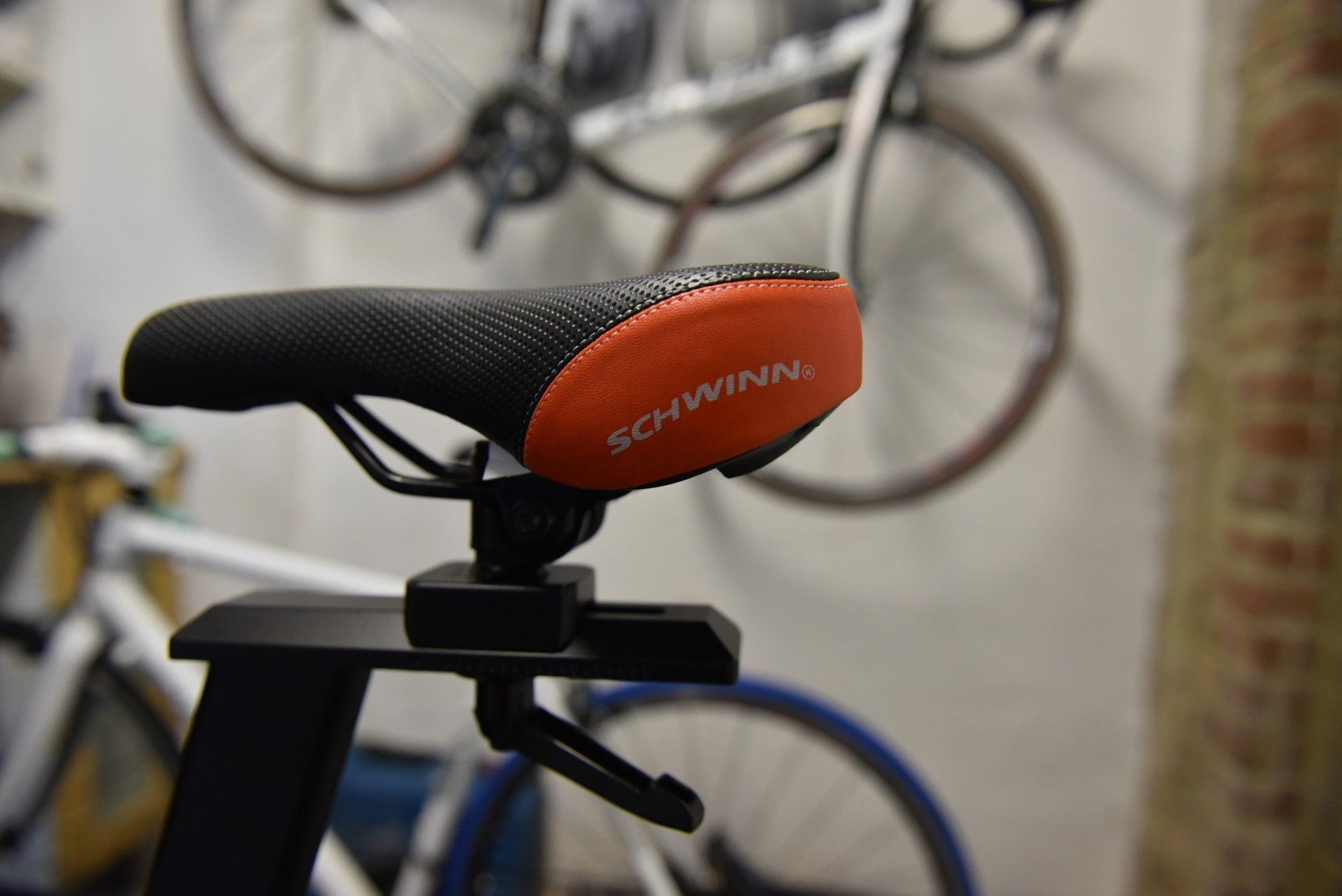
Adjusting the saddle is easy and very secure, not only do you have to pull the pin out to adjust the saddle height, but you can also twist and tighten the adjuster, too. Once secured there is no movement on the saddle, you can ride with knowing that the seat isn’t going to just fall away from you. Equally with the 4-way adjustable handlebars, these can be adjusted up and down as well as forwards and backwards, these are very secure and have never budged once while I’ve been riding.
The handlebars also have two bottle cages on them and, if you wanted to, cradles for 1.5kg dumbbells. The bottle cages are fine and will hold nearly all bottle sizes, one thing I found though is while out the saddle climbing your knees come very close to the water bottles, more so if you’ve an 800ml water bottle in the holder. I like a nice close bike fit so it’s easily overcome by just adjusting the handlebars slightly further away from you.
Mounted to the handlebars is also a holder for a tablet or similar where you can have your training app, this is very handy – I’ve always found that perspiration is an issue here though, dropping on to the screen so I tend to have my laptop further away from the bike, safe from any spills of water or perspiration.
Schwinn Fitness 800C: value
Compared to that of a Wattbike Atom Next Generation (opens in new tab)(£1,999.00/$2,599.00) or Wahoo Kickr bike ((£2999.99/$3,499), the Schwinn is significantly cheaper; its durable, too. The levels of accuracy in power may not be the same as what you would get from a more cyclist-focused bike, with an inbuilt strain gauge, but the level of workout still can be. In a similar price bracket is the Life Fitness IC1, which has a belt driven flywheel which will require maintenance and repair as the belt will stretch.
Another magnetic resistance flywheel in the same price bracket is the Echelon, but this only offers 32 levels of resistance opposed to 100, so the Schwinn 800IC will offer much smaller gaps between 'gears', allowing you to find your optimum workout level and cadence much more easily.
- Schwinn Fitness 800IC specification
- Display: Full Color Backlit LCD Display, plus tablet holder
- App compatibility? Yes - Peloton, Zwift, etc
- USB Port: Yes
- Resistance type: Magnetic
- Heart Rate Monitor: BlueTooth Heart Rate Tracking enabled
- Adjustmnet: Horizontal and Vertical Race Saddle Adjustment, Handlebar adjustment
- Pedals: Dual SPD Pedals,
- Size: 123.7cm (L) x 53.8cm(W) x 131.6 cm (H)
- Weight: 48kg
- Warranty : 2 yrs on parts against manufacturing defect

Thank you for reading 10 articles this month* Join now for unlimited access
Enjoy your first month for just £1 / $1 / €1
*Read 5 free articles per month without a subscription

Join now for unlimited access
Try first month for just £1 / $1 / €1
Myles Warwood is a cycling journalist, automotive journalist and videographer. He writes for Cycling Weekly, Cyclist and Car magazine.
-
 Milan-San Remo 2023: Route and start list
Milan-San Remo 2023: Route and start listAll you need to know about the first Monument of the 2023 season
By Ryan Dabbs • Published
-
 Summit finish and final day time-trial for 2024 Tour de France finale in Nice
Summit finish and final day time-trial for 2024 Tour de France finale in NiceStage 20 will finish atop the Col de la Couillole before final day race against the clock in Nice
By Tom Thewlis • Published
-
 Closing the gap: David Gaudu emerges from Paris-Nice more confident than ever before
Closing the gap: David Gaudu emerges from Paris-Nice more confident than ever beforeThe Groupama-FDJ rider finished second overall at the Race to the Sun, but gained more than just the result
By Adam Becket • Published


